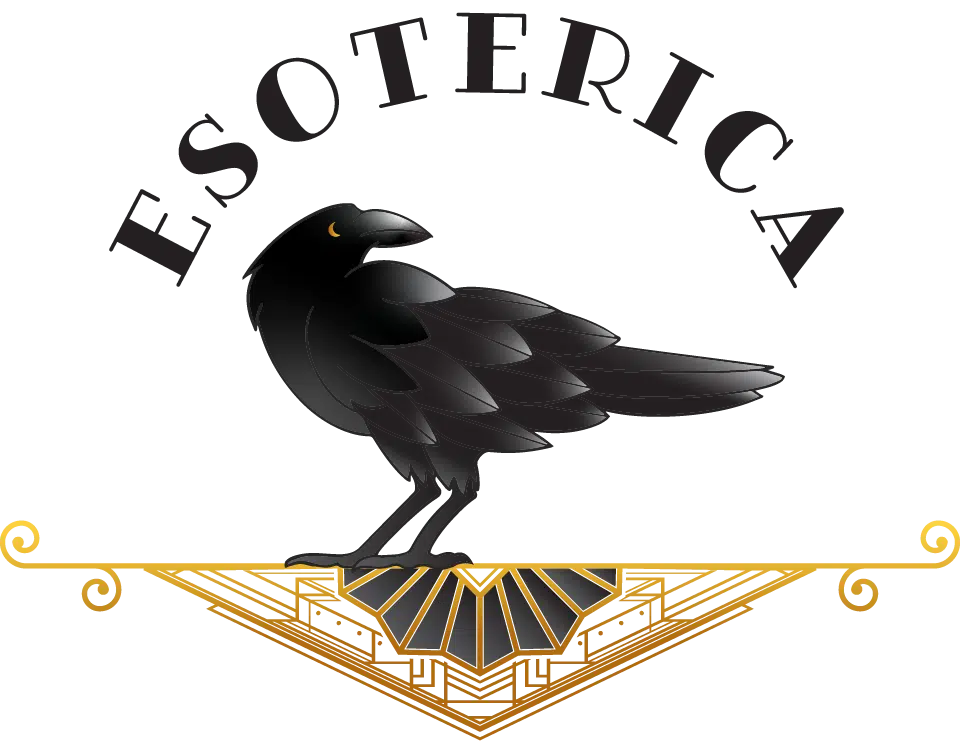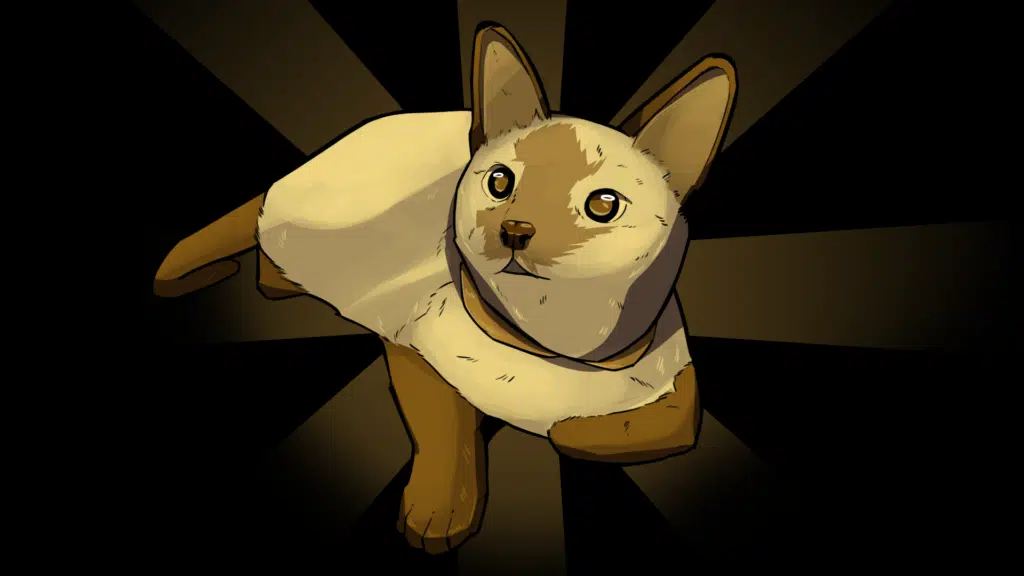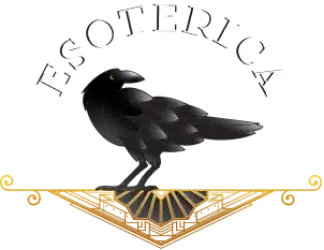By Christopher Allen
Nonna changed after her kitten was eaten. We all did, more or less. But the little fur ball was her greatest friend. She loved him more than Dad, I think.
They lived together for a year after Grandpa passed, sharing the two-bedroom bungalow that he liked to say he built with his bare hands, although I later learned it was actually a prefabricated structure he had delivered in a box truck from a company in Florida.
I’d like to think he helped them put it together.
He brought the kitten home to Nonna shortly after he learned he was dying of pancreatic cancer, a diagnosis which is as close as anyone will get to learning exactly how much time they have to live. The doctors were off by a day. And Nonna often joked that Grandpa always finished his projects later than expected. It gave him a sense of power.
“He held on just to spite them,” she’d say.
On the ride home from his last meeting with his doctor, he stopped at the shelter off the highway and picked up the youngest kitten in the place, its early age improving the odds that Nonna would have a friend and roommate by her side for the rest of her days.
Grandpa even named it Frank, after himself.
After his funeral, me and Nonna went to her house and sat around the backyard while Dad went back to work. It was a strange day, and I’m not sure if it was because of Grandpa’s death, or that I just started noticing things I’d overlooked before.
“Everything looks different here,” I said.
“As you begin to lose your people, you’ll find you improve,” said Nonna. She was fixing up a plate of meat and cheese for me and pouring herself a drink. “The death of loved ones, while sad, is a wonderful educator.”
Nonna was right. I think that day was the first time I had looked beyond the faces of my family to see the vaster surroundings, though I can’t be sure of that. The sky was tremendously orange. I could hear the scraping of dead leaves as the wind pushed them over the patio. And the birdsongs seemed louder, which put Frank on edge.
“It’s just the two of us now,” she said, I assume talking to Frank, who came over and walked his whole body along Nonna’s leathery leg.
She looked over at me and smiled. “In the house, I mean.”
“Dad said it’s important you’re not alone,” I said. Sometimes I had trouble thinking of the right things to say to Nonna. She was always so intense. Dad often called her a “Drama Queen.” If someone said something Nonna found offensive to her sensibilities, they were in for a dressing down, as the saying goes. I would mostly just stay quiet and listen. Or repeat the things that Dad said about her. I wasn’t afraid of her, many were, and I was always interested in her reactions to Dad’s comments. She would get really ruffled and physically shudder. They had a weird thing going on.
“Your father is the one who can’t be alone,” said Nonna. “Did I ever tell you about the time he pissed himself during a choral recital?”
Nonna asked me to grab another bottle from the kitchen table inside. When I came back Frank was fast asleep on her lap.
“Pour me another,” she said. So I did. And the sun tumbled down the sky and disappeared behind the earth.
That night back home, I was lying in bed when I heard Dad on the phone. Something was up, so I went to my door and listened. You can tell when Dad is upset because his voice gets all high-pitched. Sometimes I forget my parents are divorced and think it’s Mom talking, even though her voice is deeper than Dad’s. I hate it when this happens, getting reminded that Mom is gone.
I heard silence, broken now and then by Dad squealing into the phone. I could hear him walking back and forth in his bedroom through the entire conversation.
“For god’s sake, Mother! He’ll be fine! Just go to sleep, will ya!?”
I went out to the hallway and sneaked up to his bedroom door. I could hear the womp womp of Nonna, pleading her case, whatever it was. She was not giving up easily.
“They know how to take care of themselves,” continued Dad. “He’ll run up a tree or something. The coyotes only hunt the animals that stray from their homes. And your yard is fenced in. Don’t worry…Just go to sleep!”
A minute later Dad, perhaps realizing he was making his high-squeaky voice, came to my room. I was too worried to pretend I was asleep. I could not keep my eyes closed, though I tried.
“That was your grandmother,” he said. “Her cat is missing.”
“His name is Frank.”
Then Dad calmed down. So did his voice.
“Your Grandfather was all she had,” he said. “I think his death really threw your Nonna for a loop.”
“Nonna says that death makes us smarter.”
Dad tilted his head confusedly. “How can you be smart and dead, son. That doesn’t add up.”
“Not like that,” I said. “You get smarter when other people die.”
“That’s one way of looking at it,” he said. “Alright, time for bed.”
“Maybe we should help her find Frank,” I said.
“He’ll be fine,” he said. “Try and get some sleep.”
In the morning we went to visit Nonna before I had to go to school. On the drive over, Dad got serious. His left leg was jerking up and down as he drove. I could tell he was worried.
“We should prepare ourselves for the worst,” he said. “Your Nonna is getting on in years and with Grandpa gone, I’m concerned she might go off the deep end.”
Then Dad looked over at me and shook his head. “I shouldn’t have said that.”
Nonna’s house was only a block away. When we pulled into the driveway, I saw her curtains move, and her face appeared through the living room window before disappearing.
“What in Christ!” squeaked Dad. Then we got out and walked up to the door. She opened it right away and moved back into her living room, shaking, smoking one of her skinny cigarettes. She was wearing the same clothes she had on the day before. A pair of jeans and a tee shirt with a picture of a cat that said Fluff Off across her breast. I was relieved when I saw Frank in the corner, sleeping on Nonna’s white leather lounger.
“I see everything worked out,” said Dad. “And with all that unnecessary worry.”
Nonna was seething, giving him her thanks-for-nothing look. Then she smiled at me, but kind of mean-like, with her eyes squinted.
“Is everything alright, Nonna?” I asked.
“She’s fine,” said Dad. “Just a little fright was all.”
Her hair was messy, and she was circling back and forth around the living room. Then I noticed Frank’s hair was all tangled up, like he’d been run through the washer. Nonna looked down at me as if to give the heads-up she was about to say something harsh and strange. This happened a lot, a telepathy with her eyes, saying watch out here it comes!
Nonna daggered Dad with her eyes. “You’ve always been a coward,” she said. And he looked like he would cry.
I could see Dad was hurt. He turned away and approached the lounger, but froze before reaching Frank, gasping. Then in his squeak-voice yelled “Oh God!” so loud it pierced my ears. As I looked closer, I could see Frank’s hair was matted down around his neck and he wasn’t moving. Dad put his hand down on Frank’s back and then pulled it away, placing his hand over his mouth, which was wide as a lion’s yawn.
Frank’s head rolled sideways on the lounger, only partly attached to his neck.
“Why would you bring him back inside!” Dad wailed. “Have you lost your mind?!”
“He decided to stay an extra day,” said Nonna. “It’s kind of a running theme around here.”
Dad tied a hanky around his face and carefully placed Frank on a shovel and we buried him in the backyard. Nonna said a prayer and I made a cross out of two wooden paint mixers I found in the garage, tied together with the knitting yarn that had been tied to the birdbath. I wrote “RIP Frank” across it and drew tiny crosses on its corners.
“We’ll get you another,” said Dad. I wanted to stay with Nonna, but she said to go to school. She had some preparations to make.
“I’m officially in mourning again,” she said. “And I must ensure my Frank’s death was not in vain.”
Dad shook his head and placed his hands in his pockets, only removing them to open the latch on the front door to leave, without another word to Nonna.
“Meet me outside,” he said. Then I watched him shuffle back to the car.
Nonna bent down to whisper to me. I thought that was strange because my dad was already outside. While she spoke, she looked at the framed picture of Grandpa on the mantelpiece, placed next to his ashes, which were held in a golden urn.
“After your father goes to sleep tonight, I want you to sneak out and come help your Nonna,” she said. “I’ll take the blame if your father finds out… and don’t disappoint me.”
That night, I placed some pillows strategically down my mattress so it looked like I was there, sleeping. I could hear Dad in his bedroom, listening to opera on his record-player, his nightly routine. I waited an hour after the music stopped before moving, the electric tension in my toes shooting up my legs like little race cars. It struck me that I had never snuck out before. This was a bit frightening, but the fact that Nonna had asked me to do it made it much easier. No way I could be in trouble for following her orders, I reasoned. She still had seniority.
I rose and made it down the stairs, holding my sneakers in my hands until I reached the back deck. The motion light gave me a shock, but the neighborhood was always full of critters and the light in Dad’s bedroom didn’t flash. So I jogged through the leafy park that separated our house from Nonna’s.
When I arrived, she was standing on her front porch in a neon swishy jumpsuit she wore for her tai chi classes. It’s all silvery with strange shapes and very colourful. She had on Grandpa’s headlamp too, turned down on her forehead.
She shot the headlight on my face and then turned it over my shoulders, as if to see if I was being followed. “We don’t want to attract any undue attention,” she said, moving the light back down at the ground.
As I got closer, I saw her clutching Grandpa’s 22 caliber air rifle.
“We must stay quiet. After dark we don’t rule the roost around here. My Frank learned that the hard way. He died for your father’s sins.”
“What are we doing out here, Nonna?”
“Come inside, I have to show you something.”
She opened the screen door and led me inside. All the lights in the house were out, the only glare coming from her desktop computer in the corner of the living room. I could see on the screen what looked like a map, with collections of red dots spotty over the land. I recognized it as Aquidneck Island, where we lived. I could spot the pond at the end of town and the huge park by our houses. Looking closer, I saw that most of the red dots were north of our neighbourhood; however, a few red spots surrounded our street, which Nonna had highlighted with a click of her mouse, turning our neighborhood purple.
“You see this? Here. Look. Nonna’s been doing her research. This is a map of all the coyote packs on the island. This good doctor at the University has been working on it as part of a conservation program. She thinks that showing us where they live will prevent people from encountering them. Bless her soul.”
Nonna took a sip of her grape juice. I could smell her vinegary breath even more heavily than usual and her teeth, often just a subtle shade of pink, were now, when the moonlight coming through the window hit her face, like someone had swiped a Sharpie of blood-red ink across her chompers.
“What I need you to do is flank Nonna when we get out there,” she said. “Stay a few feet behind me and give a holler if you see anything. Your Nonna is getting tunnel vision in her old age. Need young fresh eyes.”
“What’s flank?” I asked.
“Just stay close but not too close,” she said.
“This is stupid, Nonna. What are you trying to do?”
“Revenge, my little one,” she said. “It’s how we keep all God’s creatures honest.”
She took one last look at the computer screen and clicked it dark. She turned up her headlamp and we went outside. I felt like the temperature had dropped 20 degrees since I had left my house. And the wind had picked up a bit, the dead leaves twirling in circles up and down the street and sidewalks.
We strolled under streetlights in silence, which was broken only by a squirrel or raccoon bumping into a trash can or the rustling of trees. Occasionally a car would move by slowly, braking for a moment to make sure the old woman in a tracksuit with a headlamp, grasping an air rifle, flanked by a sidekick, wasn’t an apparition. I stayed close enough to Nonna that passersby would know we were together, the night owls, the business of which was, hopefully, not important enough to investigate further. None of the cars ever stopped. Maybe they thought we were crazy.
We came upon the northern tip of the park, the grass and trees spread out to the rocky cliffside that ran down to the pond. At night, the park looked like another planet, one controlled by creatures that spoke their own language, had families and memories and problems like we did. Though I had spent many hours in the park, I felt like a tourist.
When we entered, I saw a grouping of fruit trees in an almost-perfect circle, dead rotting fruit on the ground that popped and squashed under my sneakers.
“It’s somewhere over here,” Nonna whispered, consulting a crude map she had hand-drawn in fluorescent Sharpie on the back of an envelope she took from her pants pocket. Then she got low, like in a war movie, holding one hand up behind her to tell me to stop, the other hand clutching the rifle. She slowly put her hand down and put both hands on the rifle.
I heard a click.
I saw two yellow eyes in the darkness, floating low like a pair of lightning bugs. I had never known what it meant to be paralyzed, like those sad people in wheelchairs I’d seen on television. I wanted to budge but needed to stay. I was confused and wished a great big fluffy bird would swoop down and fly me back to my bed.
I couldn’t speak. I shut my eyes. When I opened them the bug-eyes were still there, only larger and the outline of a terrifyingly skinny four-legged figure surrounded them, looking hungry and with much less hair than I had imagined such a creature would have. It looked starving, like it was dying, but had an energy that made it clear I could never outrun it.
Nonna, I mouthed mutely. She didn’t hear me. I watched as she went down to one knee. I thought of running away. But no matter how scary it was to face, the thought of turning my back on the animal was scarier.
Then suddenly two car headlights bathed the creature from behind me. It didn’t dart off like I’d expected. It disappeared from within the flood of white and yellow flashes.
Nonna yelled “there it is!” and I heard her swishy pants banging together like smoothed-out sandpaper. The car screamed up in front of us and stopped.
“Oh no you don’t,” said Nonna.
Dad emerged from the car in his bathrobe and said the first half of my name before a soft airy shot rang out and he clutched his left eye and fell to his knees, wailing.
He collapsed to the street on all fours, his backside pointing up to the moon.
I turned and saw Nonna, the rifle at her side, looking weirdly calm.
After Nonna died, my dad sold her house to a young couple from the city. One day we went to clear out the last of her things. Dad had refused to honor Nonna’s wishes that she be buried in her yard.
As Dad packed up the clothes and knick-knacks in Nonna’s bedroom, I found her last will and testament in a box on the kitchen counter.
“I do not want to be cremated,” it read. “Please place me in a plot next to Frank, my second departed love.”
Before we left, Dad burned the paper in the sink. He didn’t know I’d already read it. Nonna was cremated and placed in the same golden urn as Grandpa, their ashes mixed in eternal embrace.
I removed Frank’s memorial, which Dad was afraid might freak out the new owners. When it was time to leave, he came outside and placed the last box on the patio table, adjusted his eye-patch and winked. And we went home.
Christopher Allen is a writer and journalist based in Providence, Rhode Island.


